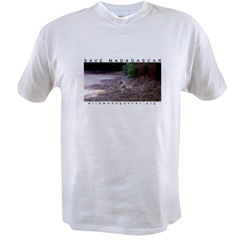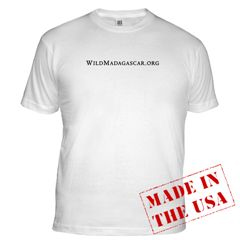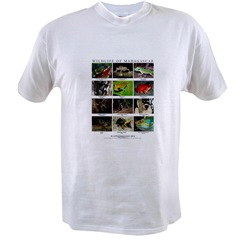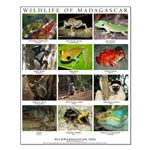Madagascar products reaching foreign markets thanks to USAID-funded project
EthnoPharm press release
August 23, 2005
It is no wonder that the country-island Madagascar — known for its extremely unique biodiversity — also produces some of the best smelling and promising therapeutic aromatherapy oils in the world. According to aroma-therapists, these oils have the potential to not only enhance our environments, but also to affect our minds, mood states, and possibly also alter our biochemistry and aid in healing. Madagascar is recognized as holding tremendous potential for the development of new products in the essential oils, dietary supplement, functional food, pharmaceutical, cosmetic & body care, and handicraft markets due to the fact that 80% of its flora and fauna is endemic — meaning so unique that they are found no where else in the world.
The exotic essential oils of Madagascar are now making their way into U.S. and European businesses thanks to a project funded by US-AID called Business and Market Expansion (BAMEX). This project is aimed at helping to promote and increase the world market presence of Madagascar essential oils, spices and handicrafts. One of the activities this project has undertaken is to increase business linkages between U.S. and European businesses and supplier individuals, communities, and groups in Madagascar.
Kerry Hughes, M.Sc., Ethnobotanist and consultant with the BAMEX project hopes to attract businesses that are interested in developing value-added products from Malagasy spices and essential oils. One of the key programs she is developing through the project will help to create direct “fair-deal” type relationships between companies manufacturing products in the non-traditional markets and small suppliers or communities in Madagascar. The non-traditional markets she hopes to reach include dietary supplements, functional foods, body care & cosmetics, sustainability markets and handicrafts. Hughes can be reached by email at Kerry@EthnoPharm.com.
Specifically, there are many essential oil producers from Madagascar that are looking for distributors from the U.S., or exclusive partners to sell in the U.S. The BAMEX project has created a 3-pronged approach to creating these business linkages for Malagasy producers. The first pronged approach is to find distributors representing the different market channels in the natural products market, including cosmetics, functional foods, dietary supplements and handicrafts. The second approach is to find larger businesses who will want to create Madagascar-theme lines of products, and help them to create direct relationships with producers. The third approach is to create fair trade type of relationships by facilitating the direct relationships between Malagasy producers and small businesses who are promoting sustainability and social responsibility.
Why Madagascar?
For 85 million years, the flora and fauna of Madagascar evolved in isolation from the rest of the world. Today, eight of ten plants on the island grow there and nowhere else. Examples of the totally unique essential oils and botanicals from Madagascar include the Ravinsara leaf known for its aroma, spice and therapeutic applications. Oils derived from the Ravinsara leaf are soothing and relaxing oil in massage oil blends. Aroma-therapists believe that the oil can travel deep into muscle tissues and joints. Some have suggested that the oil has antiviral properties, and it is thought to relieve rheumatism and joint inflammation. Another totally unique essential oil from Madagascar to relieve rheumatic pains is Katrafay, which is also used in Madagascar by women after giving birth as a fortifier and tonic. It is also believed to have anti-inflammatory properties. Cinnamosma fragrans (also known as saro, mandravasarotra or sakarivohazo) is used traditionally as a decoction for treatment of malarial symptoms. The essential oil is used for tired and aching muscles.
According to suppliers, there are quite a few other high quality aromatherapy oils produced in Madagascar. These include niaouli used for clearing, cleansing and mental stimulation; Lantana camara used for flu, colds, coughs, fevers, yellow fever, dysentery and jaundice; ylang ylang used as an aphrodisiac; cinnamon (bark and leaf) used to destroy microbes and bacteria, and holding promise for people with diabetes; tamanu (Calophyllum inophyllum) used to treat skin ailments; wild orange petit grains, used as a lively and soothing fragrance and to relieve dry skin; a unique ginger (fresh) oil used for circulation, aching muscles and nausea; and clove bud oil, which has been utilized as a local anesthetic in dentistry, as a food preservative and as an alternative to Deet.
There are many types of producers and exporters in Madagascar looking for business relationships. For example, two essential oil companies are well developed and ready for creating deeper relationships abroad. Homeopharma has sales and marketing offices in Europe, and manufactures essential oil balms, soaps, shampoos, and medicinal teas. Another quality producer, Phael Phlor, has a U.S. agent, Lemur International Inc., based in San Francisco. Although already selling in the U.S., they are looking for companies that might be interested in developing Malagasy-themed lines, and take a greater interest in Madagascar essential oils and spices. “My clients tell me that they get essential oils from all over the world and the essential oils from Madagascar are the best,” said Roger Rakotomalala, a Malagasy-American supplier and president of Lemur. Georges Halpern, MD, PhD, a respected herbal medicine author and author of “The Healing Trail: Essential Oils of Madagascar” (Basic Health Publications 2003), dedicated a whole book to this topic and writes that these essential oils with their traditional and modern uses for healing or cosmetic purposes and their application to aromatherapy may well be the best in the world.
For those interested in learning more about Madagascar, its essential oils, their producers and exporters, please visit the website: www.madagascarnatural.com. Here you will find more about the BAMEX program and some of the wonderful offerings from Madagascar. For more information or interest in creating business linkages, please contact Kerry Hughes at: kerry ATethnopharm.com.
This is a press release from EthnoPharm. WildMadagascar is not responsible for the accuracy of the content found in this release.
 Save Madagascar T-shirt Sifaka lemur dancing shirt |
 Madagascar Wildlife T-shirt Wildlife of Madagascar |
 Save Madagascar T-shirt Wildlife of Madagascar |
 Wildlife of Madagascar Poster in Malagasy and English |